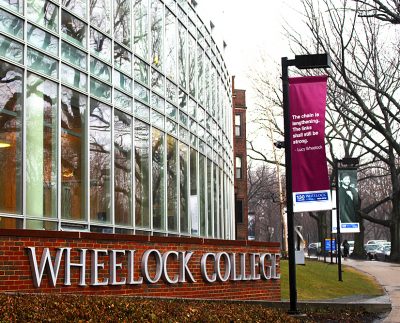
The Massachusetts Board of Higher Education received a report with recommendations from a working group to monitor the financial health of private colleges in the state Tuesday.
The recommendations come after the closing of Mount Ida College last spring, along with the closing and merging of other colleges in the state, including Wheelock College’s merger with Boston University in June 2018.
Katy Abel, a spokesperson for the Massachusetts Department of Higher Education, said the board’s working group found that the risk of future closures of colleges is “significant, ongoing and likely growing.”
“The current measures of financial health that we have are insufficient,” Abel said. “We need to adopt a new process for identifying and managing risk, so that we’re making sure that students are getting adequate notice before a college closes, so that they can make other plans.”
Abel said the working group suggested the department adopt a principle to determine whether or not a school has the ability to stay open for an additional three semesters by Dec. 1 of any school year.
If the department finds a school to not be financially viable, they will have a full contingency transfer and teach-out plan completed and approved by the department. Students will also be notified of the financial condition their institution is in.
While the regulations the working group proposed are not yet in place, Abel said it will be up to Department of Higher Education Commissioner Carlos Santiago to propose regulations based on the recommendations.
Another recommendation by the working group to regulate colleges, Abel said, is to cut them off from receiving state financial aid if they are not forthcoming with financial information to the DHE.
Abel said the purpose of the proposed regulations is not necessarily to help colleges and universities stay open or to close them.
“What this legislation is about is protecting students,” Abel said. “When Mount Ida closed, suddenly we saw students and families devastated. We saw students without a clear pathway to completing their degrees. We saw an institution that didn’t communicate clearly and early enough with the department.”
BU President Robert Brown wrote in an email that he has followed the workings of the committee responsible for the proposed plan to monitor the financial health of private colleges and universities.
“Because of the differences between institutions this is a difficult assignment — it is hard to find one metric that really describes the health of a university,” Brown wrote. “Trying to find a simple metric risks over-simplification and creating ‘false positives’ (predicting that an institution is in financial trouble) that potentially could hurt institutions.”
Brown wrote that he does not think the monitoring system would not have affected Wheelock’s merger with BU in last year, as Wheelock’s board had decided long before being in financial crisis to consider merger options.
“The process being developed by the State may benefit institutions where the board has less in-depth understanding of the operations of the institution,” Brown wrote.
Chris Shaughnessy, 47, of Fenway, said she thinks the regulation of small, private colleges’ financial situations is a good idea.
“Hopefully it will give students some security that they would have a college to go to and some notice if it’s going to close,” Shaughnessy said.
James Gorman, 27, of Back Bay, said he thinks it makes sense to have a contingency plan in place in the case a private college is in a financial situation where it has to shut down.
“Students shouldn’t be getting stranded from a college,” Gorman said. “There should be some sort of support from the government to make sure the college can extend a semester so students aren’t stranded.”
Diana Klimas, 34, of Mission Hill, said she was in favor of the state monitoring system.
“It seems like a fairly smart plan,” Klimas said. “I think the sudden closing of schools is a real problem for the students and faculty, so I think a contingency plan is a good move.”
Joel Lau contributed to the reporting of this article.






















































































































